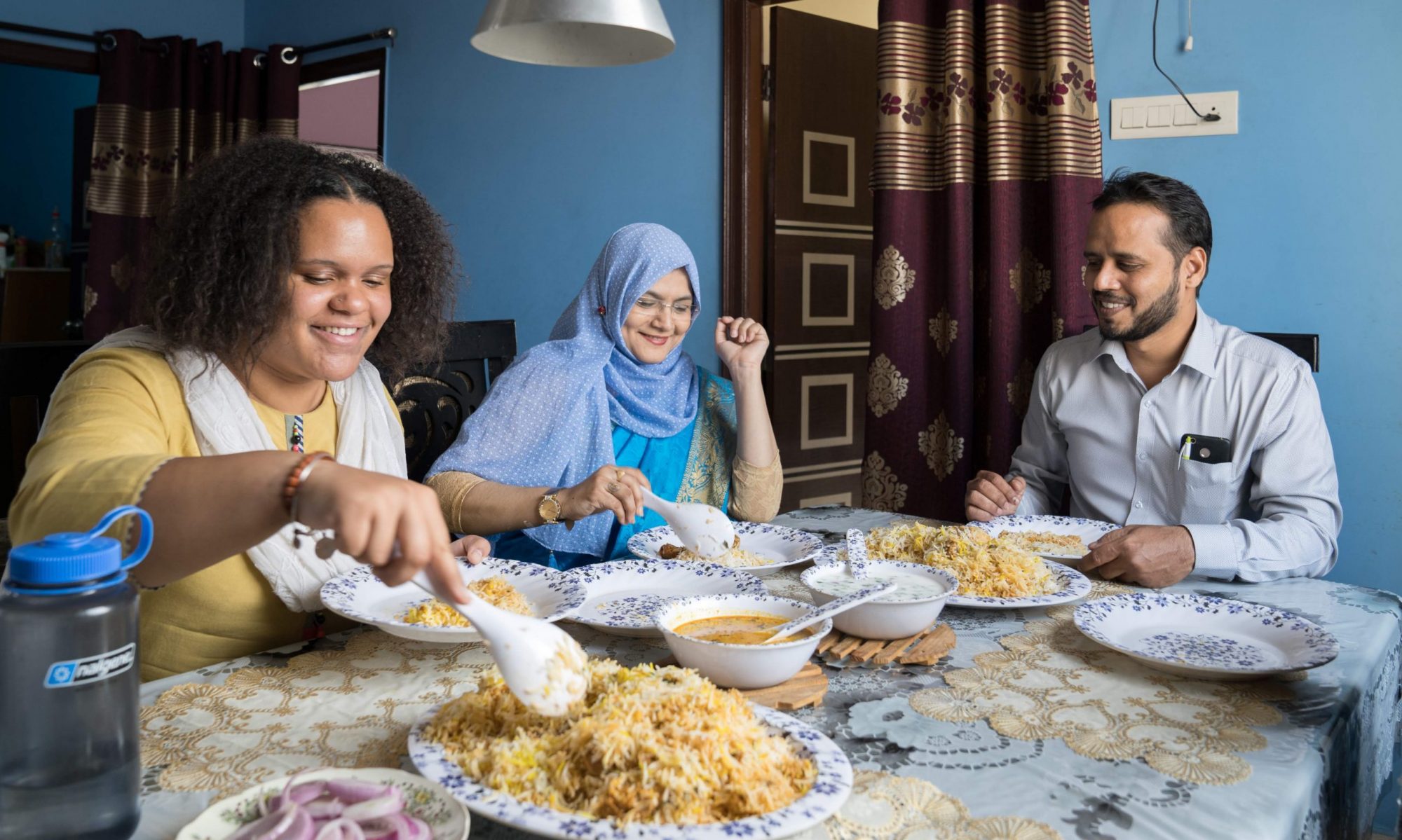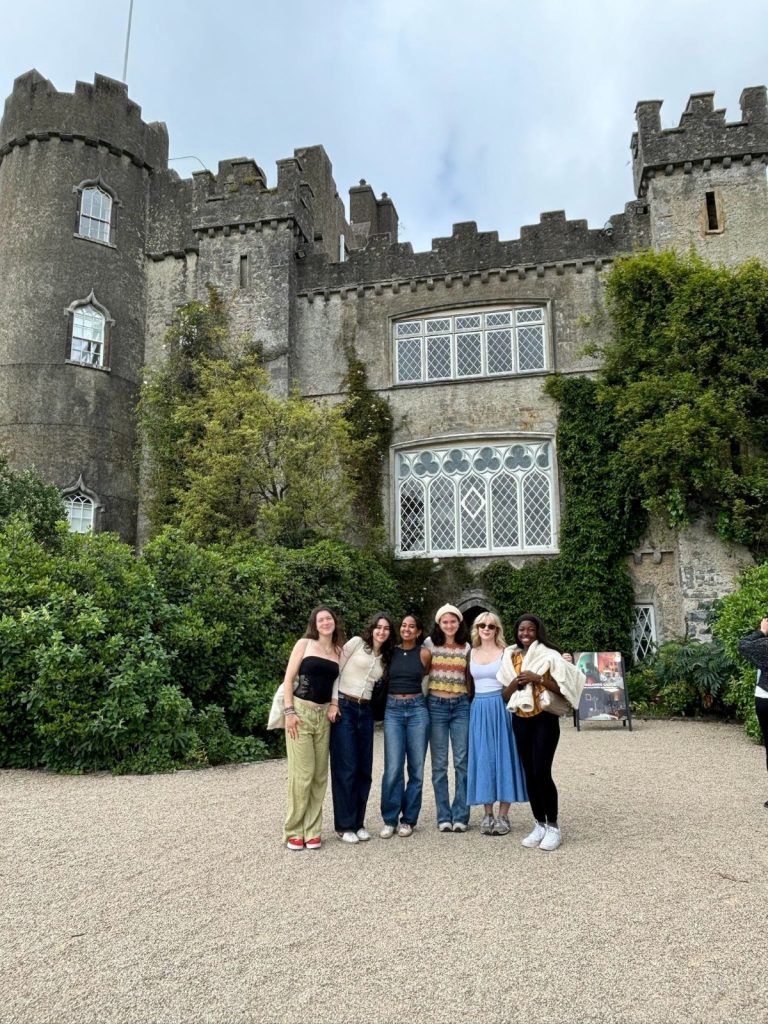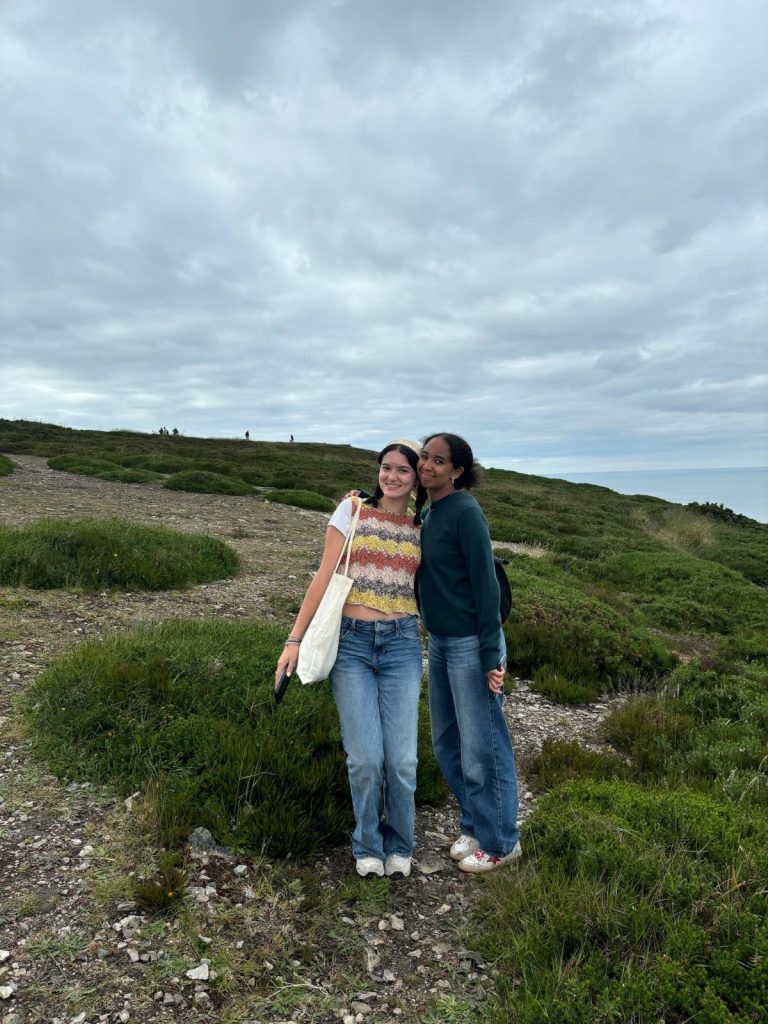by Michaela Weinberg, A25
After arriving yesterday evening, despite jet lag and a cramped night of sleeping on the plane, the six of us went out to walk in the Medina. Amidst the sounds of Ramadan-shop owners, loud music and a chorus of Tunisian Arabic and French conversations-we settled down for dinner. We had a delicious meal of spiced couscous, calamari, and brik-a Tunisian pastry of tuna, egg and potato.

Having spent last night settling in, we were ready to get to work this morning. Our team split up, some heading to the neighborhood of Sidi Bou Said to explore the architecture, while another group went to an interview with the head of the French Institute. Meanwhile, I spoke with the founder of an economic empowerment union, the Association Patrimoine pour l’Economie Solidaire(APES), or the Heritage Association for Economic Solidarity. We discussed one of APES’ partner organizations, Ftartchi, that was formed about five years ago as a culinary school for people who wouldn’t otherwise be able to get a formal culinary education. Ftartchi has training programs for women, young people, and migrants in Tunisia, and frequently collaborates with other economic empowerment organizations in Tunisia and throughout the Maghreb.
Jumping into a taxi later that day, I immediately started a rapport with the driver. When we reached the wealthier part of the city, we started joking about the “hotels and apartment buildings we owned” on the streets we drove through as the wealthy “businessmen and bankers” that we were. Driving by an apartment building he put on a smirk and told me, “And this is my apartment building, right here.” I responded, “Oh, you live there?” “No, I live in Spain. But I do business in Thailand,” he quipped back. The conversation was lighthearted, but couched within his humor was a recognition of his economic reality. As we continued playing at our alternate identities, I realized that, in some sense, it was my second conversation that day about Tunisia’s social and economic inequality.




